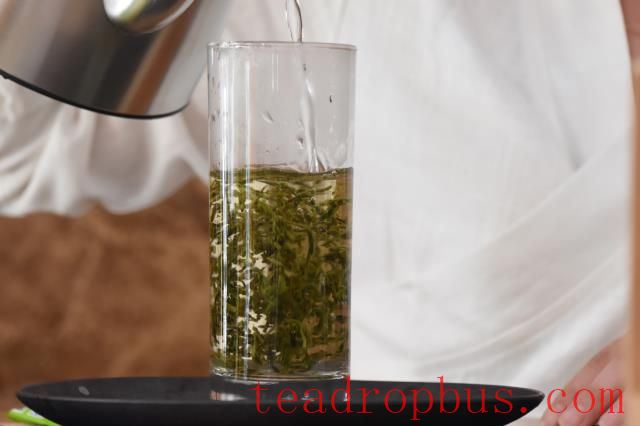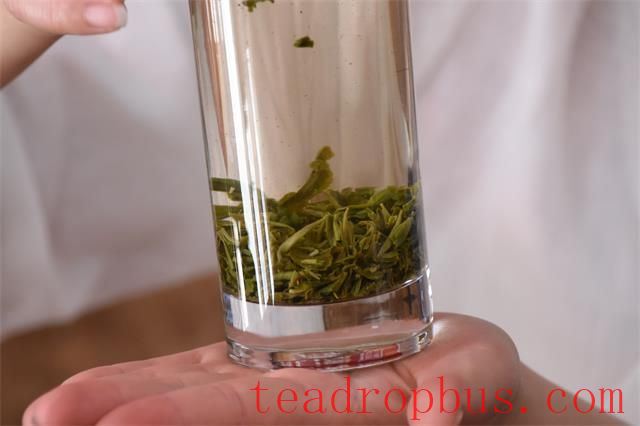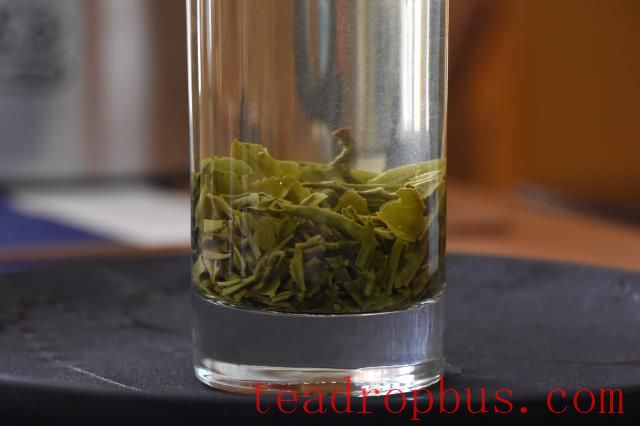Green Tea retains a large amount of the natural substances found in fresh leaves. It preserves over 85% of the tea polyphenols and Caffeine, around 50% of the chlorophyll, and loses very little of its vitamins. This results in the characteristic features of green tea: clear broth and green leaves with a strong astringent taste.

Green Tea Glass Cup brewing Method
Clean the tea cup, then pour 85–90°C water into the cup, followed by adding the green tea. Generally, there is no need to cover the cup. The green tea leaves will slowly sink on their own, though at different rates; some will fall straight down, others will descend gradually, and some may float up and down before settling at the bottom of the cup. As the dry tea absorbs water, the leaves gradually unfurl, revealing their original appearance as single buds or leaves. The buds resemble spears or swords, while the leaves look like flags. The aroma of the tea rises from the surface of the broth, creating a refreshing and pleasant scent. Observe the color of the broth, which may range from yellow-green to clear, milky-white with a slight green hue, or light green with a hint of yellow. Holding the cup up to the light, you can see fine hairs floating in the broth, shimmering and sparkling like stars. The presence of many hairs in the broth indicates that the tea is made from tender leaves, a hallmark of high-quality green tea.

The Best Time to Drink Green Tea
Generally, there is no specific best time to drink green tea, and it can be consumed at any time during the day. However, for individuals with gastrointestinal issues, it is recommended to drink green tea 0.5 to 1 hour after eating. Drinking green tea at this time avoids the potential stomach irritation that can occur when drinking on an empty stomach and is beneficial for overall health.
Green tea is a common beverage that retains the natural substances found in fresh leaves and is rich in tea polyphenols. The caffeine in green tea can stimulate the cerebral cortex, helping to eliminate fatigue and invigorate the mind. For busy individuals, moderate consumption of green tea can help alleviate fatigue and improve work efficiency. Additionally, caffeine can also stimulate the kidneys, promoting the rapid excretion of urine, which aids in diuresis to some extent.

However, for people who have trouble sleeping, it is not recommended to drink green tea before bedtime, as it may cause excessive excitement or frequent urination, potentially disrupting sleep. According to Traditional Chinese medicine, green tea has a cold nature and can help to clear heat and reduce fire in the body. Drinking green tea in moderation during summer can also help quench thirst and relieve internal heat.